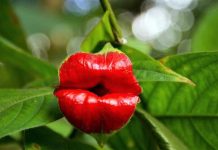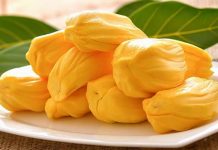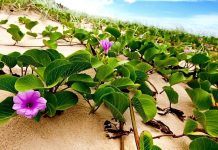Scientific name: Sterculia foetida L.
Family: Sterculiaceae
Synonym: Sterculia mexicana var. guianensis Sagot
Bengali/Vernacular name: Jongli badam, Udal badam.
Tribal name: Yaa-hea (Chak), Hla-kho-dei (Rakhaing).
English name: Poom tree, Wild almond, Java olive, Sterculia nut.
Description of the plant: A medium-sized to fairly large deciduous tree, up to 40 m tall. Leaves crowded at the ends of thick branchlets, digitately compound, 5-10 foliate, leaflets 8-15 cm long, elliptic-lanceolate, entire. Flowers are malodorous, dull, yellowish to purplish, 2-2.5 cm in diameter, and borne on panicles at the axils of the leaves, appearing with new leaves. Fruit a follicle, smooth, boat-shaped, woody, short beaked, red when mature; seed black, oblong, arranged in two rows.

Plant parts used: Leaf, fruit, seed.
Ethnomedicinal uses: Decoction prepared from the bark of the plant is used for the treatment of dropsy and rheumatism.
Decoction of fruit is used for blennorrhagia
Decoction of leaves used as wash for skin eruptions.
Paste prepared from the seeds of the plant is used to treat skin disease.
Distribution: The plant is usually planted as roadside shade tree in Chittagong, and Mymensingh districts and other parts of the country.
Is this plant misidentified? If yes, please tell us….















… [Trackback]
[…] Find More here to that Topic: natureinfo.com.bd/sterculia-foetida/ […]